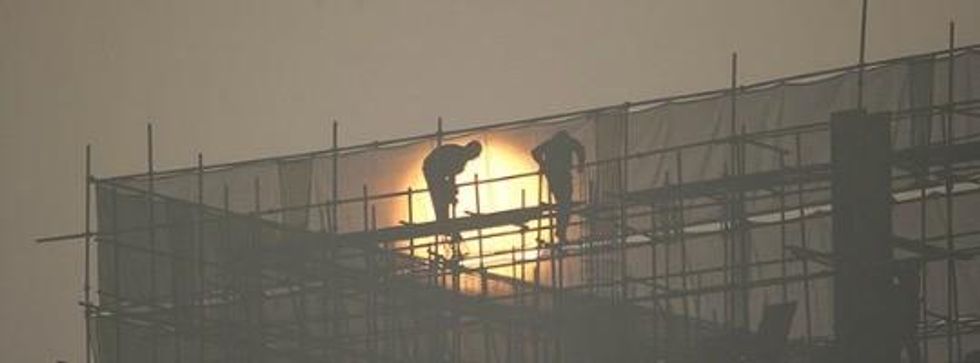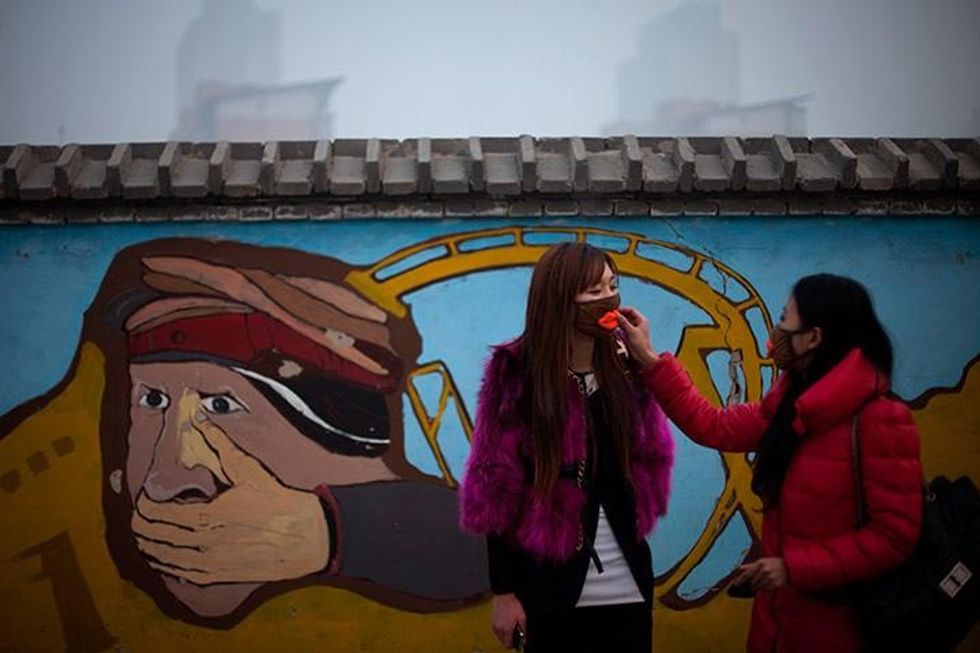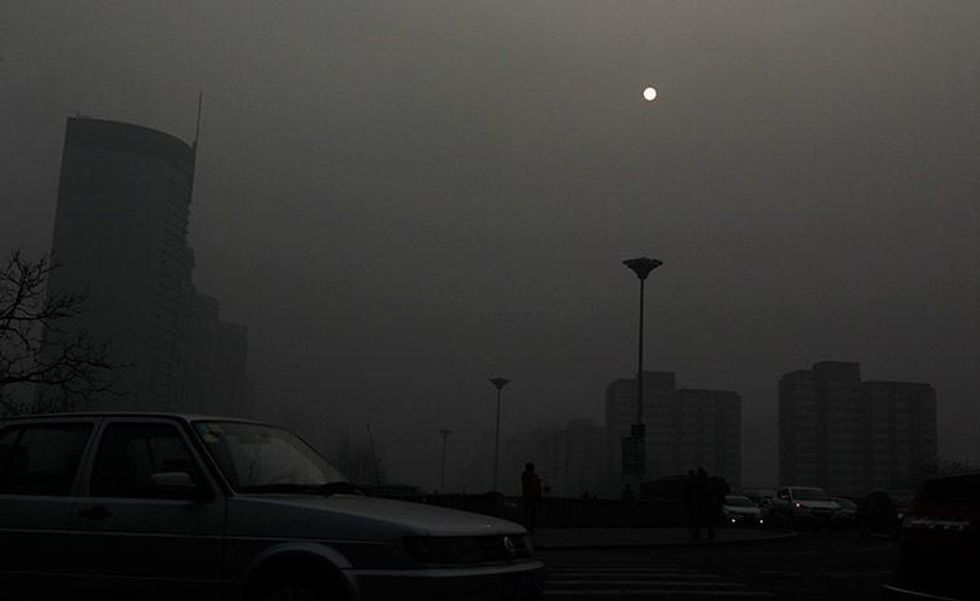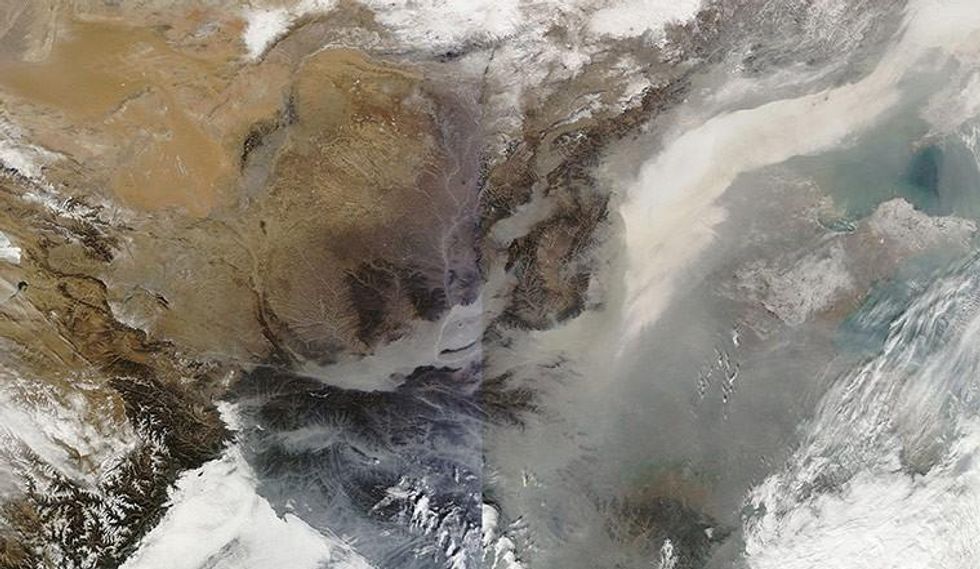Dense, grey smog shrouded Beijing on Saturday prompting criticism and a rare government alert, as state media raises questions over the country's lack of information transparency and the rapid growth of industrialization.
As the Chinese capital recorded its worst pollution reading since the air quality monitor on was installed in the US embassy in 2008, the government advised citizens to stay indoors and ordered government fleets to hault driving. The acrid smog cut visibility to 100 meters forcing flight cancellations while ceasing work at many factories and building sites.
Public anger in response to the dangerous levels of pollution spread Monday as state media joined internet users in questioning government transparency, as urbanization and economic development have taken precedent over environmental concerns.
"In the middle of a rapid urbanization process, it is urgent for China to think about how such a process can press forward without compromising the quality of urban life with an increasingly worse living environment," wrote one editorial in China Daily.
According to Al Jazeera, officials in China have a history of "covering up environmental and other problems by not releasing information."
However, the undeniable extent of the growing problem of air pollution--which can be attributed to the country's rapid pace of industrialization, reliance on coal power and explosive growth in vehicle ownership--was made plain this weekend, inciting public outrage and forcing a government response.
Al Jazeera continues:
In an editorial on Monday the state-run Global Times newspaper called for more transparent figures on pollution, urging Beijing to change its "previous method of covering up the problems and instead publish the facts".
Earlier this month a chemical spill into a river was only publicly disclosed five days after it happened, and the authorities were widely criticized for initially denying the existence of the Severe Acute Respiratory Syndrome (SARS) outbreak in 2003.
"The choice between development and environmental protection should be made by genuinely democratic methods," the Global Times said. "Environmental problems shouldn't be mixed together with political problems."
Beijing authorities said readings for PM2.5--particulate matter less than 2.5 micrometers in size, small enough to deeply penetrate the lungs--hit 993 micrograms per cubic meter at the height of the pollution on Saturday, almost 40 times the World Health Organization's safe limit, Al Jazeera reports.
Small particulate matter can cause cardiopulmonary disease, lung cancer and acute respiratory infection, according to the Journal of Toxicology and Environmental Health.
According to the Associated Press, the growing Chinese middle class has been more vocal about the quality of the environment, and credits a Twitter feed from the U.S. Embassy that gives hourly PM2.5 readings with increasing demands for improved air quality. They report:
The Chinese government now issues hourly air quality updates online for more than 70 cities.
"I think there's been a very big change," prominent Beijing environmental campaigner Ma Jun said, adding that the government knows it no longer has a monopoly on information about the environment. "Given the public's ability to spread this information, especially on social media, the government itself has to make adjustments."
The wave of pollution peaked on Saturday and remained hazardous on Monday with a PM2.5 reading of 321. The high levels are expected to last until Tuesday.






